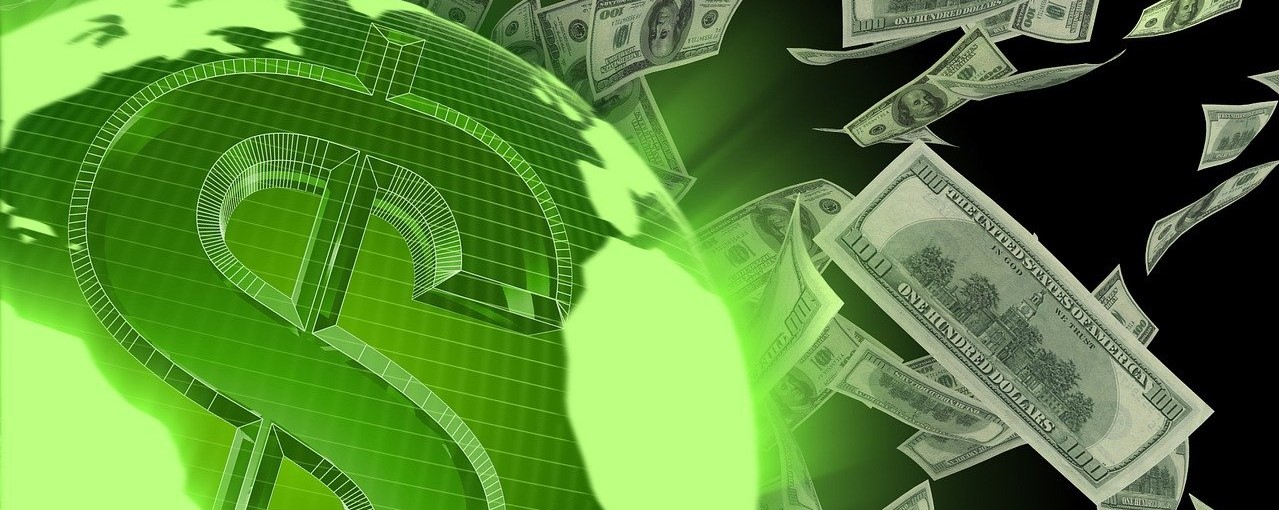US Stimulus Package
March 29th, 2021

Biden’s $1.9tn stimulus set to boost global economy
President Biden’s Covid-19 Relief Bill has been sold as a tool to boost the US recovery, but the wider world will also welcome the stimulus package. We know that when America sneezes the world catches a cold, and America has indeed been sick. However, the hope is that when America’s economy receives a boost, the global economy stands to benefit too.
What’s in the bill?
The plan calls on the government to send out $1,400 per person, with the payments quickly phasing out for those with higher incomes – at $75,000 for a single person and couples making more than $150,000. The bill also provides money to extend jobless benefits until September and increased support for parents having to balance work with extra childcare duties.
The money will also be directed to improving coronavirus testing facilities and developing a national vaccination programme. Schools will receive payments to assist with reopening. Business support comprises of cash grants for small businesses and more targeted funds for the hardest hit sectors. Employers are also given financial assistance to allow paid leave for infected workers.
Direct payments
At £1.9 trillion, the cost is colossal. To put it in context, Biden’s US Rescue Plan alone is larger than most countries’ annual economic output. And Biden’s plan is not the first. $2.5 trillion in aid was authorised during Donald Trump’s final year in office, plus a $900 billion relief bill that was passed in December 2020. What gives this plan global significance is where all this cash is likely to be spent.
The bill will add 9 per cent of national income to US spending power. Many Americans will soon receive their stimulus cheques for $1400 (£1015). But given that sectors such as hospitality, travel and entertainment are closed or curtailed across many of the states, much of that extra cash is likely to be spent on consumer goods made outside the US. Allianz, the insurer, has estimated that $360bn of the $1.9tn stimulus money would be spent on imported goods.
Worldwide impact
The evidence from the previous stimulus packages suggests that Chinese imported goods will make up the lion’s share of this purchasing. Following the final $900 relief bill from Trump’s term, Chinese export rose by more than 60% during January and February. With the US and Chinese economies receiving a sudden surge, it is hoped that the rest of the world will follow.
The world’s two largest economies account for 40 per cent of global gross domestic product, so their success should encourage growth elsewhere. However, a rapid economic recovery would not come without its own difficulties. The rising cost of raw materials threatens to offset the rising demand. A world bounding back to life after a year of lockdowns is also vulnerable to supply delays and distribution bottlenecks.
Global comparisons
The United States is one of the few major economic powers to offer cash payments as a response to the pandemic and is offering them on a greater scale than any other. Most other large economies have instead fallen back on pre-existing social safety nets. Many European countries paid companies to keep workers on, as opposed to the U.S. approach, under which the laid off could seek supported benefits.
A number of European governments have used loan guarantees to help prop up businesses. These loans will eventually have to be repaid and the various furlough schemes will come to an end. This presents a somewhat artificial economic picture and makes global comparisons different. It may be some time before the various responses around the world can be accurately compared and their effectiveness judged.
Positive outlook
The OECD has now said it expects the US economy to grow by 6.5% in 2021, more than double the 3.2% it had predicted three months ago. Moreover, it expects the US stimulus package will have knock-on effects for other countries, raising the global growth rate by one percentage point. If this knock-on effect does occur, it offers a route towards a much better recovery than that after the 2008-09 global financial crisis.
With vaccination programmes rolling out across the globe and a stimulus package providing a shot in the arm to the world’s largest economy, the landscape of 2021 is changing. Predictions are being revised upwards. To discuss with our team of experts what this outlook could mean for your business’ plans for overseas expansion, or to learn more about how we can assist, please feel free to contact briars.
Copyright © 2024 Briars Group | All Rights Reserved | Read Our Cookie Policy
